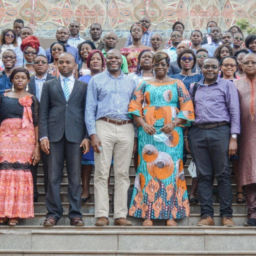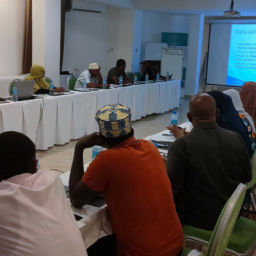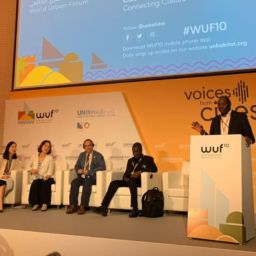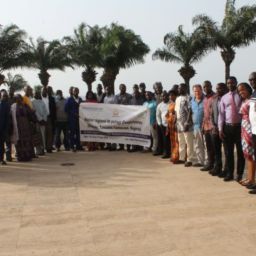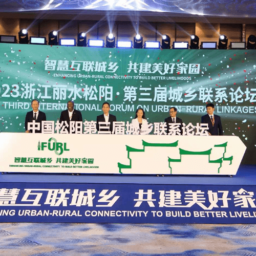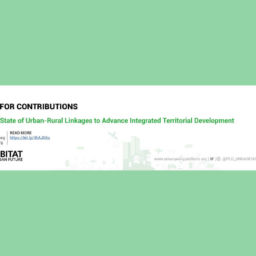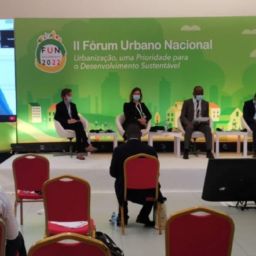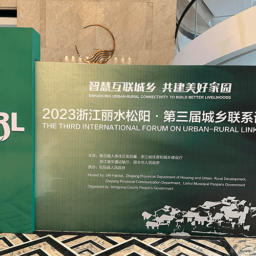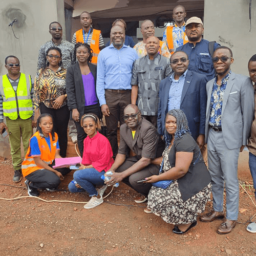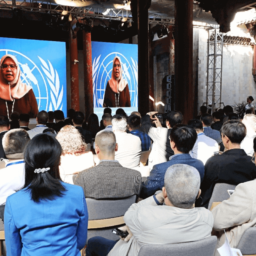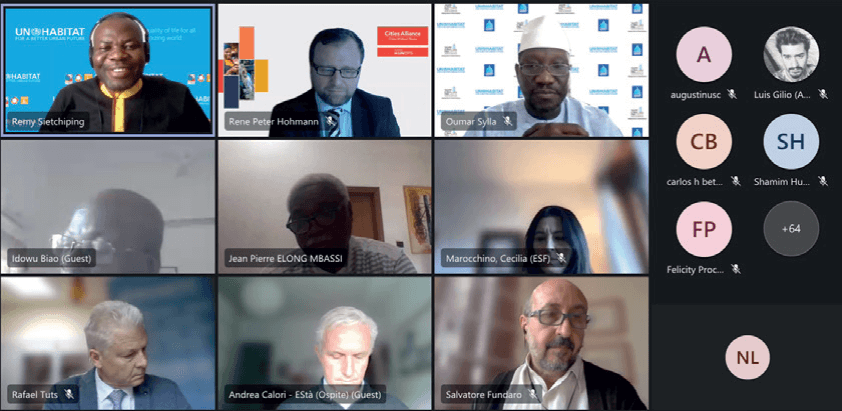
Webinar, 21 January 2022
‘Africities Summit Places Urban-Rural Linkages at the Heart of the Debate’
In the wake of rapid urbanization in Africa, the importance of intermediary cities in strengthening urban-rural linkages is growing exponentially. In recognition of this trend, UN-Habitat and the Urban Cities and Local Government of Africa (UCLGA) organized a webinar on “The Role of Intermediary Cities in Strengthening urban-rural linkages Amid Rapid Urbanization in Africa” in preparation for the upcoming 9th session of the Africities Summit to be held in Kisumu, Kenya in May 2022.
Over 100 participants gathered virtually and contributed to a rich three-hour long session. Ten panelists were drawn from various institutions to share African experiences, case studies and tools to optimize the performance of intermediary cities in the context of urban-rural linkages. Participants were enticed by an active discussion with the two groups of panelists moderated by Mr. Remy Sietchiping, Chief of the Policy, Legislation and Governance Section at UN-Habitat.
Mr. Sietchiping kicked off the session by thanking all the participants for their attendance and giving a brief mention of the purpose of the webinar. In the opening remarks, Mr. Oumar Sylla, Director of the Regional Office for Africa at UN-Habitat, stressed the importance of intermediary cities in the context of rapid urbanization in Africa. He remarked, “Intermediary cities are significant in structuring the urban network and connecting the local and regional to the continental and global level. This necessitates the urgent need for urban and sectorial policies to reference the growing importance of intermediary cities in programming and planning decisions”.
Mr. Jean Pierre Elong Mbassi, Secretary General of the UCLG, contributed to Mr. Sylla’s observation, pointing out that intermediary cities “create a middle ground between human settlements and nature”. He stressed, however, that intermediary cities face many challenges including weakening food systems in the era of Covid-19 and climate change. He then offered five priority issues that could support intermediary cities as: food system, housing, basic services. infrastructure maintenance and local governance.
Mr. Raf Tuts, Director of the Global Solutions Division at UN-Habitat, subsequently led the first keynote speech, highlighting how UN-Habitat has prioritized its strategic plan around territorial approaches and reducing spatial inequalities. He then called on the audience to appreciate the important role intermediary cities play as service centers, in food systems, rural transformation and addressing challenges such as health pandemics and climate change. On behalf of the Governor of Kisumu County, Mr. Aloice S. O. Ager Special Advisor to the Governor and Head of Africities Secretariat, underscored the legal and policy frameworks that are conducive for making intermediary cities more productive and prosperous. Ms. Rose Gamwera, the Secretary General of East African Local Government Association on the other hand stressed the importance of people-centered development of which the systems of settlements could foster multi-level cooperation in East African countries.
Leading the first panel of speakers, Dr. Hassan Radoine, lead lecturer at Mohammed VI Polytechnic University in Morocco, added a striking and impassioned twist to the discussion by debating on what constitutes an intermediary city. He remarked, “The concept of an intermediary city is a problem: what makes a city intermediate and why?”. He then went on to present the case study of Morocco and spoke to the importance of culture, diversity and a sense of belonging regarding intermediary cities, as well as the importance of these human settlements in striking a balance of territorial equity within nations. Dr. Abdul Hussein, Permanent Secretary, Niger State Ministry of Lands and Housing at Niger State and Dr. Robert Sangori, Deputy Director, Urban Development, State Department of Housing and Urban Development echoed the extent and instruments of issues faced by intermediary cities within the context of Niger state and Kenya respectively.
The second panel of speakers was led by Ms. Cecilia Marocchino, Urban Food Agenda Coordinator, FAO, who delved into an important dimension of the debate, i.e., the role of intermediary cities in strengthening food systems by connecting urban and rural areas. Ms. Marocchino said “The key challenge remains the food governance gap between the national and the local government, which needs to be addressed through policy integration and partnerships.”
Mr. Vicente Ruiz, Economist at the OECD, redirected the discussion by bringing us to consider the impact of climate change on intermediary cities. He mentioned that due to their close proximity to rural areas, intermediary cities experience drought, flooding, heat waves etc. Touching on an important point from Ms. Marocchino’s discussion, Mr. Ruiz informed us that there is often a disruption in the food system, as well as an increase in climate-induced migration.
Dr. Rene Peter Hohmann, Head of Global Programmes at the Cities Alliance/UNOPS also added a valuable point to the debate, urging us not to consider intermediary cities as isolated entities, but rather as actors within systems and networks. Dr. Hohmann highlighted the system-thinking approach as a guide to form a shift in planning and policy that takes into consideration equitable economic growth among territories. Mr. Salvatore Fundaro from UN-Habitat closed the second panel by adding a valuable dimension to Dr. Hohmann’s discussion. He stressed the role of regional plans in connecting urban and rural areas and enhancing the role of intermediary cities in this important effort.
Closing remarks were provided by Mr. Oumar Sylla who concluded the debate on the definition of intermediary cities, he said that it’s mainly less about location and more about the functions they play. The idea then is to make intermediary cities perform well in their role as hubs of economic development, social transformation and environmental protection. This would be possible through stakeholders working together towards: integrated regional planning, policy coordination, partnership, good governance and investing in fiscal system and infrastructure of intermediary cities.


